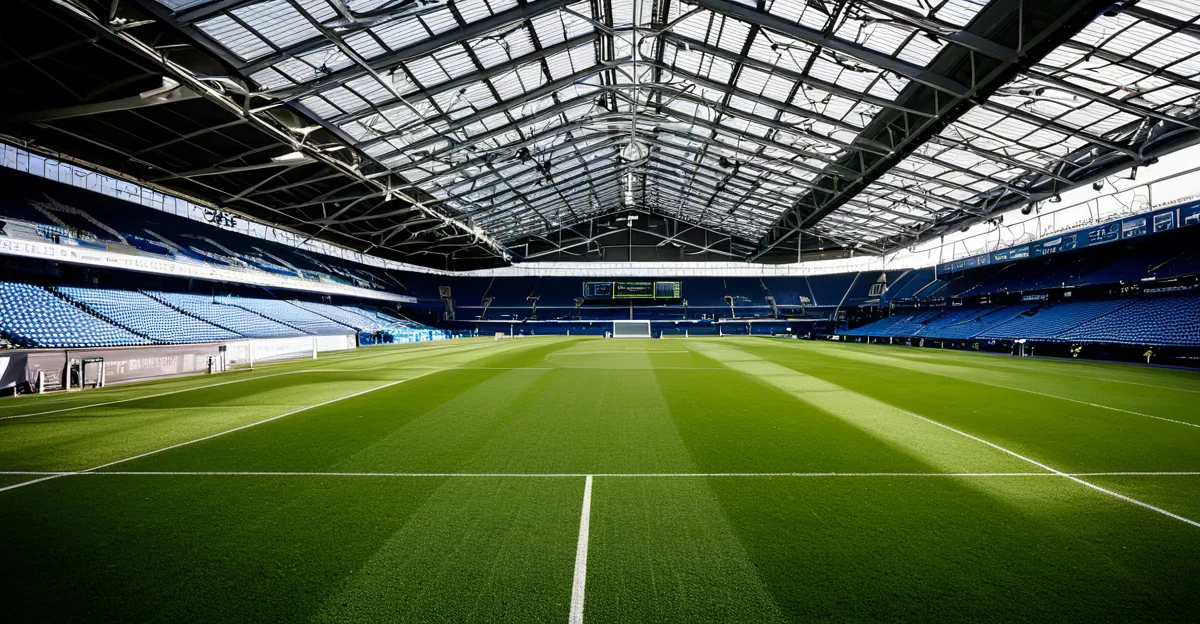Sustainable strategies in UK sports facilities
Sustainability has become a core focus for UK sports facilities sustainability, integrating eco-friendly practices that enhance both environmental impact and operational efficiency. Common sustainability initiatives in these venues include energy conservation, waste reduction, and water management, all designed to align closely with national and international standards such as ISO 14001 and BREEAM certifications.
UK sports facilities employ various sports venue green practices, notably the adoption of renewable energy and energy-saving technologies that reduce carbon footprints while cutting operational costs. Sustainability strategies often extend beyond regulations, reflecting a commitment to long-term environmental stewardship and enhancing the facility’s reputation among fans, sponsors, and local communities.
Also to discover : How Are UK Sports Teams Enhancing Fan Experience Through Innovation?
These sustainable strategies emphasize a holistic approach, incorporating waste recycling programs, eco-friendly constructions, and water efficiency measures. Facilities that adopt these methods typically see measurable improvements in resource management and cost savings. For example, green certifications streamline continuous improvement by benchmarking performance and ensuring adherence to government guidelines. Thus, sustainability in UK sports venues is not just about compliance—it’s a strategic investment that fosters resilience and supports broader climate goals.
Energy efficiency implementations
Energy efficiency is a cornerstone of UK sports facilities sustainability, significantly lowering operational costs while reducing environmental impact. A popular sports venue green practice involves transitioning to LED lighting, which uses up to 75% less energy than traditional bulbs and lasts longer. Complemented by smart energy controls, these systems automatically adjust lighting and heating based on occupancy, optimizing energy use throughout facilities.
This might interest you : How Are Upcoming UK Sports Events Shaping Cultural Trends?
Renewable energy adoption further enhances efficiency. Many venues integrate solar panels or wind turbines, contributing clean power directly on-site. This not only cuts carbon emissions but can also generate cost savings over time, reinforcing sustainable strategies that align with both environmental and financial goals.
A prominent example is the Emirates Stadium, whose investment in renewable power technologies has transformed its energy profile. Solar arrays and energy-efficient systems combine to demonstrate how sports venues can lead in embracing green technologies. Applying such energy-saving technologies is increasingly crucial in UK sports facilities sustainability efforts, as they offer scalable solutions with measurable benefits for operational efficiency and carbon footprint reduction. This clear focus showcases how eco-conscious choices contribute beyond compliance to become strategic assets in sports venue management.
Waste management and recycling programmes
Effective waste reduction is a fundamental component of UK sports facilities sustainability. Many venues implement comprehensive recycling initiatives, including on-site segregation of plastics, paper, and organic waste. These programmes often extend to compostable packaging within food and beverage services, minimizing landfill contributions and promoting resource recovery.
Partnerships with local organisations support circular economy goals by redirecting recovered materials back into productive use. This collaboration enhances waste diversion rates and fosters community engagement, making waste management a shared responsibility. For example, Wembley Stadium’s zero waste-to-landfill initiative emphasizes systematic sorting, staff training, and supplier engagement to maximize recycling and composting efforts.
Such sports venue green practices not only reduce environmental footprints but also achieve operational efficiencies through reduced disposal costs. Strategic waste management aligns with broader sustainable strategies by embedding circularity principles, reinforcing venues’ reputations for responsible environmental stewardship. As a result, these programmes demonstrate how targeted actions in waste and recycling contribute significantly to overall resource efficiency and sustainability outcomes in UK sports facilities.

